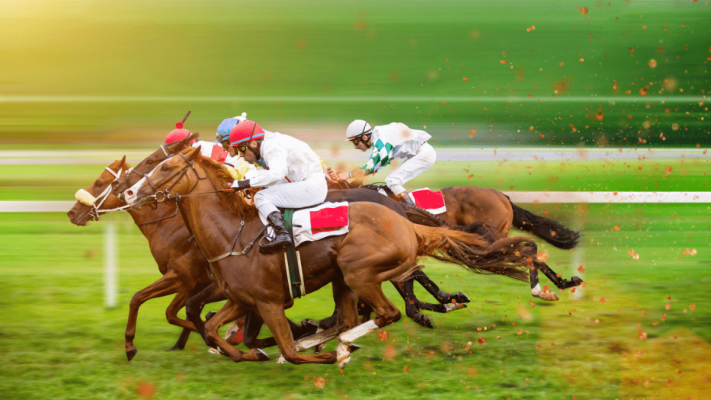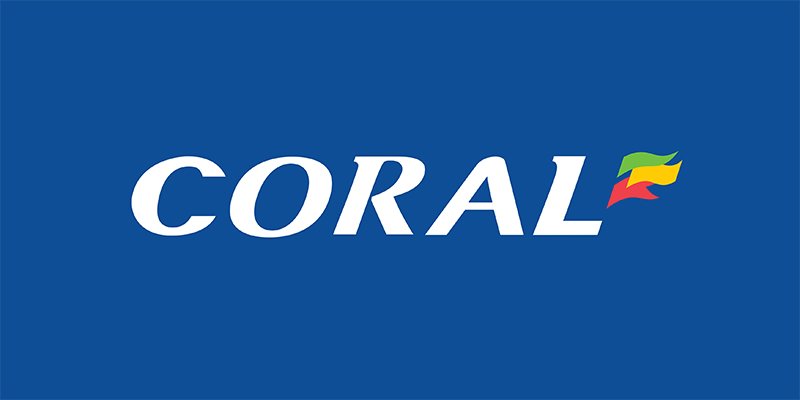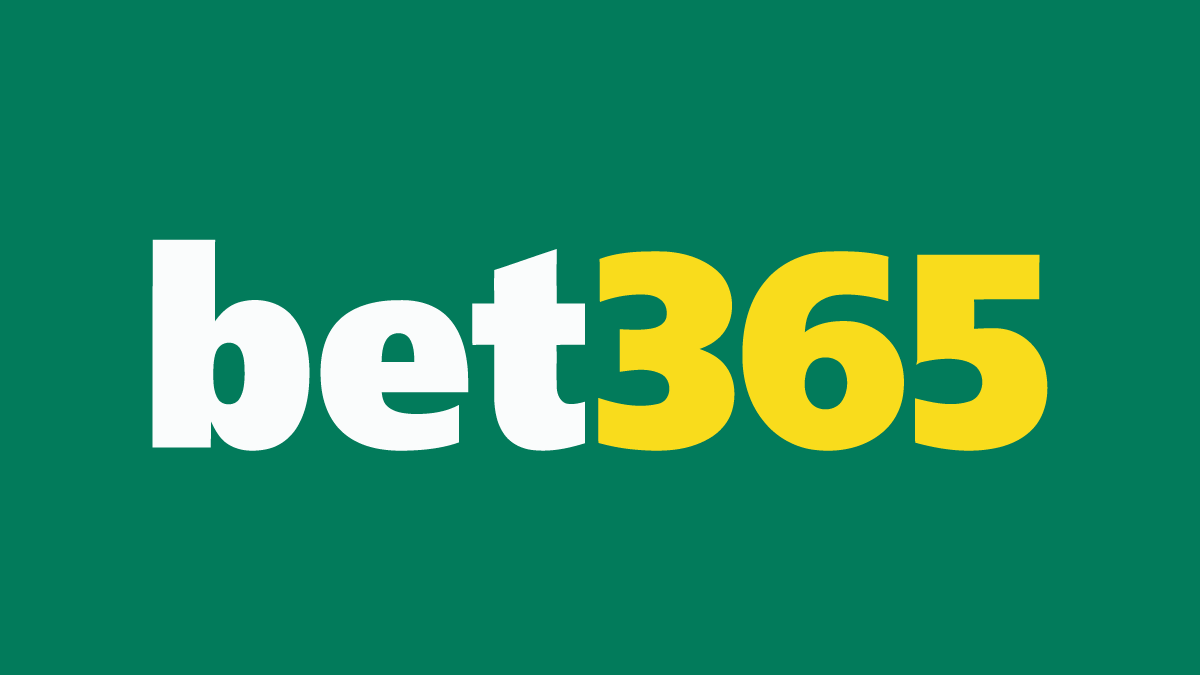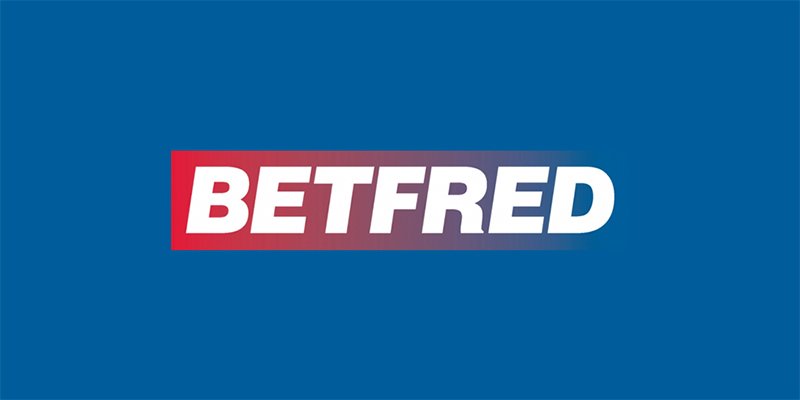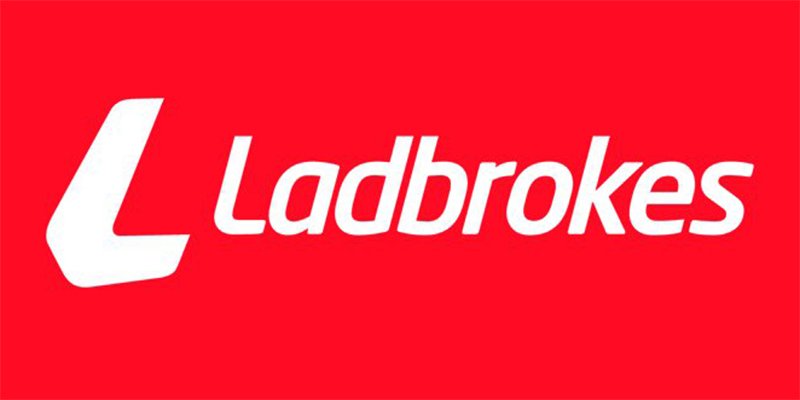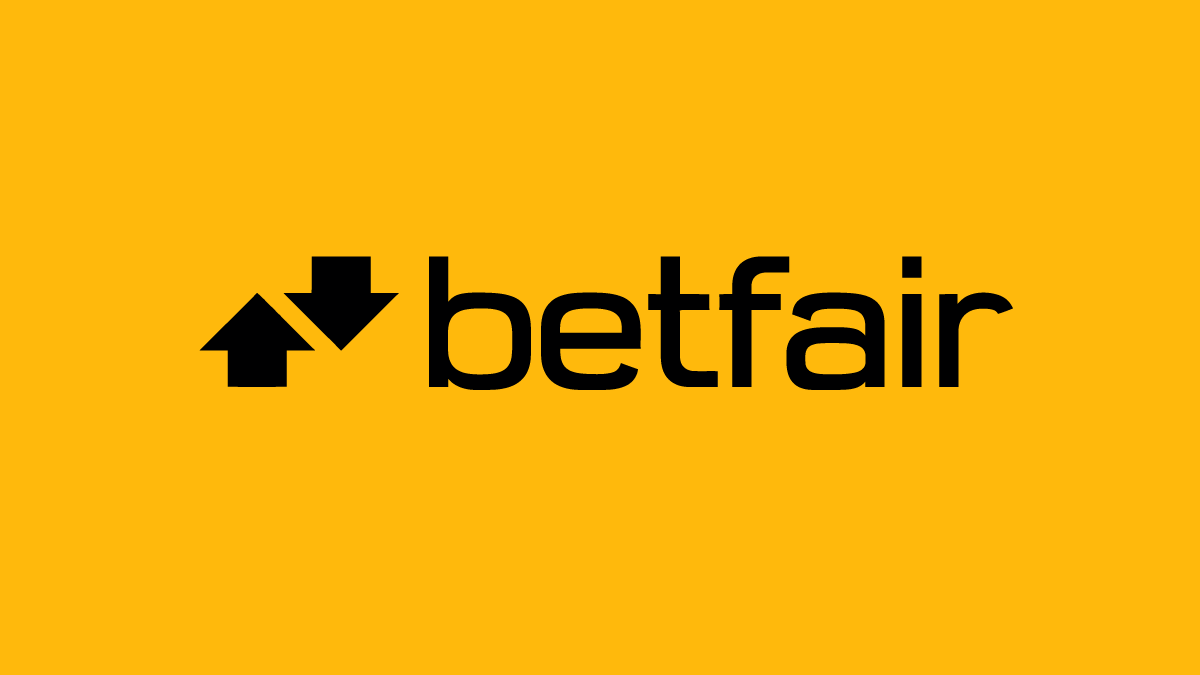Horse Racing Betting History
Evidence states that people began betting on horse racing in the early ages. The betting involved even when people were riding on the back of a horse or involved a chariot. The proof takes it back to the ancient Greeks period to 700 BC.
Although racing existed since the Greek period, its popularity began to grow in the 17th century when King James fancied the sport, giving birth to the “Sport of Kings.” It became quickly popular among the English aristocrats.
All the big races that you notice today have their origins dating back to the 1700s. It was the time when both breeding and sport became an effective regulation. Racing became even more popular over the centuries and is currently the most-watched on television. Additionally, the Internet’s availability further made it easy for everybody to record and track every upcoming event with ease. It is one of the most-watched sports in the UK and Ireland, helped by the fact most betting sites offer live streaming of horse racing events you have bet on.
Types of Horse Race
You will find betting on horse racing interesting and exciting because of the distinct and varied horse racing events in the UK and Ireland.
The first type of racing to discuss is flat racing, where the race occurs in a straight line or on a curved track. The winner of the race will be the one who passes the post first. Flat racing can take place on grass or an all-weather track. The second type of horse racing is the National Hunt race. There are obstacles present, like fences throughout the track that the horses much jump as they go round the track.
The National Hunt race further has two categories: steeplechases and hurdles. The disparity among the two is that in steeplechases, the horses jump over solid and higher fences than those in the hurdles. The steeplechases will also have water jumps and open ditches, which adds to the excitement.
You can place a bet on the flat or the National Hunt. Additionally, the two types of races will have categories based on the horse’s experience and age. The distance covered for a race also plays a crucial role in determining a horse’s category.
You will be confused when you hear about the hurdles, bumpers, steeplechases, and more. Beginners often find it challenging to understand the terms, and knowing the different types of horseraces will be advantageous. Learning about the races and the terminology will help you sit comfortably in a sport that features Kings and Queens with multi-millionaires regularly at race tracks.
Flat Racing
Racing betting sites offer the ability to place bets on both flat racing and National Hunt racing. What differentiates each type of race is the absence of hurdles. The horses run to the finish line in a flat race, either in a straight line or on a curved track. It is the simplest form of horse racing and evaluates strength, stamina, and horse speed. The race also tests the judgment and skill of a jockey.
The distance covered by jockeys in a flat race ranges from five furlongs (1,006m) to two miles. You will know the shortest race as “Sprints” and the longest as “Stayers.” The rest of the distances fall under the “Middle Distance” races. When you plan to place a bet on a prestigious race, such as the five British Classics, they tend to cover more than the middle-distance races.
You will find a flat race conducted on natural grass and synthetic surface. The natural grass race is a competitive arena and tests both the jockey and the horse’s skills and stamina, respectively. The advantage of the synthetic surface is its adherence to all-weather conditions. You will come across different categories based on the importance of the race and the quality of the horses competing.
The prestigious and widely held flat races in the UK racing calendar are the Five Classics. Royal Ascot plays the primary role as the flat racing opener of the year and is probably the most famous flat racing event.
Hurdles and Steeplechase of the National Hunt Racing
Horse racing in the National Hunt racing involves jumping over the obstacles. However, it is not always complicated. You will come across races that occur over the flat, called “bumpers.” In this race, you will find no obstacles. The hurdles’ design is such that they are suitable for horses that never took part in National Hunt racing previously. The race will be a learning experience and offers a jockey the ability to control their horse during a jump.
You will find the National Hunt racing conducted in two categories: hurdles and steeplechase. In hurdles racing, the horses jump over hurdles that do not cause any injury to the horse. The upper portion of the limitation is delicate and ensures complete safety to the horse. Additionally, the barrier does not fall upon crashing. The height of the fence is three-foot and six inches.
When you place a bet on a steeplechase, ensure that you are putting it on an experienced jockey riding an experienced horse. In steeplechase racing, horses must negotiate with the barriers and avoid injuries. Additionally, they must deal with open ditches and water jumps. Unlike the barrier’s height in the hurdles, a barrier’s length is high, and the structure is more rigid. You will find natural bushes as the barriers in some instances because of the minor injury they cause when a horse jumps and makes a landing avoiding contact with the fence.
Most horse racing events across the UK and Ireland occur in the autumn and spring, as the ground is soft. It ensures minimum injury to both the horses and jockey in case of an unforeseeable accident.
When it comes to the National Flat racing, you will have a grading system that separates the horse and jockeys based on their experience. For instance, you will find all the best jockeys and horses under the Grade 1s.
With the grading in place, it has become essential to divide the categories based on the age and the experience of the horses and the distance they would be covering for a race. You will have juvenile, novice, and open categories in the hurdles race, while the steeplechase has only the novice and open categories.
As the name suggests, a juvenile race is open to three-year-old horses when the racing event is between October and December. However, a four-year-old horse can become a race participant if the event is between January and April.
Novice races are applicable for horses that did not open their winning account. Fortunately, the open category comes with no restrictions. When a horse participates for the first time in a race, it is termed as a maiden, and you will have several maiden races in the category.
Classifications of Races
In each of the National Hunt and Flat races, there are a series of classifications that designate the purse value (prize money) and the prestige. It further sheds information on the quality of the horses involved and the jockeys. Group 1 is the top category of all and consists of the best horses, jockeys and comes with high-value betting.
Group 2 and Group 3 are the descending order and will have horses with the decreasing order of strength, stamina, and jockey’s skill. The last in the category is the handicap race.
For the National Hunt race, Grade 1 comes with the highest skilled horses and jockeys. The grades go down further to 2 and 3, listed, handicaps, and bumpers. You will have races classified as 1-7—however, most of the listed races and graded fall into the Class 1 category.
As a beginner, it is always confusing to hear the terms Grade 1 and Class 6 or Grade 3 and Class 1 whenever you are watching horse racing. Understanding the terminology helps choose the suitable grade and class depending on the amount you like to place as a bet.
National Hunt Racing Grading
When you like to place a bet on horse racing in the National Hunt category, opting for Class 1 is essential unless you are experienced. You will find all the major races falling into this category and find horses with a high handicap ranking. You will further have categorisation in the grading, where you will come across Grade 1, 2, and 3. The last in the list is the listed race.
Grade 1 is the most prestigious races, with only 30 races taking part in each season. You will have the best jockeys and horses participating in the races with a high price as the winning money. If you consider a horse racing site to place a bet, you will want it to cover all the Grade 1 races, like King George VI Chase, The Grand National and the Cheltenham Gold Cup. They are the famous races and provide the highest payouts for the winners.
You will find the Grade 2 races beneath the Grade 1 category. The weight that a horse carries in this category is dependent on two factors: weight-for-age and handicaps. If it is by selecting the weight-for-age, it is possible to enter the race after minor penalties from the previous wins. For the handicap category, there is a limitation on the weight range.
The next in the line is Grade 3, which is a valuable open handicap. There is more emphasis on the rating achieved by a horse in the handicap races. The last in the list is the listed races. The system is the same as the Grade 3 but with lower quality horses and jockeys competing in these races.
Next comes classes 2-7, where you will have division among the horses. The division is based on the quality of the horse and its handicap ranking. Do remember that Class 3 races have more chances to win a high amount than Class 4. However, a horse needs to have a good handicap rating to participate in a higher-class race.
Flat Racing Grading
You will find three distinct bands in the flat racing grading mechanism: Classics, Class 1, and Classes 2-7. The Classic race is the zenith of horse racing. It involves a horse that is just three-year-old. It is the oldest race in horse racing and has winners reading the horses’ history like the sport’s legends. You will find five different Classics in the race: the 1,000 and 2,000 Guineas, the Epson Oaks, Epsom Derby, and St. Ledger. St. Ledger is the older of the pack, with the first race dating back to early 1776.
Then you will come across Class 1 and Classes 2-7. Class 1 is the best of the best in flat racing, where the conditions attached with the race determine the weight that a horse can carry. The Class 1 races have a further classification, making it an exciting choice to place a bet. Of the different classifications, the Pattern race holds the top spot with three groups in descending order, giving priority to importance and quality.
The next in line to Class 1 is the listed races. After the listed races, it is the Classes 2-7. After the end of the race, the British HorseRacing Authority proceeds with ranking horses after considering their ability and handing over the official handicap ranking. The rank tells that the horse must maintain a certain weight to carry forward in the Class to ensure an appropriate balance in the entire group. For instance, every handicap level has a particular class, such as Class 2, where the horses are Heritage Handicaps falling into 86-100, 91-105, and 96-110. You will also come across classes with much less-weighted horses, such as the Class 7 handicaps, where the weight range is between 46 and 50.
Understand the entire thing as a beginner isn’t necessary with horse race betting. However, most things are self-explanatory, with the Grades and Classes carrying the lowest number having the best horses and high-prized races. Paying attention to the racecards will help you gain knowledge of the participant, the horses, and more valuable information you can use for a race. As you have several classes, categories, and sub-categories, the knowledge you gain on the horses will help you pick the appropriate one to win a bet.
Betting on Horse Racing
It is the betting element that brings excitement for many people or fans of horse racing. As more and more people are now gambling online, the betting companies have added more and more features and bet types that you can make. They run dedicated promotions for those that enjoy a bet on the horses and around the major horse racing events you’ll find the best deals and promotions on offer/
The tension, the explosion of power, and the triumph and the disappointment is what makes horse betting so much fun. It could be argued by many that without the betting element, horse racing isn’t as much fun, unlike other sports like football or golf betting.
Knowledge is power for picking winners, but then on any given day, an outsider can beat a favourite. With the handicapping system in play, designed to level the race, there are plenty of occasions where the handicapper has got it wrong; this presents an opportunity for those who understand horse racing to perhaps get an edge over the bookmakers.
About Betting Odds
Before you plan to go ahead by placing a bet in the preferred horse race, understanding how the horse racing odds work will be beneficial; fortunately, the process is straightforward. The traditional mode of expression of the betting odds in the UK is fractions. However, in several of the betting exchanges in Europe, you will see the odds expressed in decimal form.
For a better understanding, let us look at the following example. The odds of winning displayed for a race is 2/1, then you win or make a profit of £2 for every £1 you placed as a bet. Therefore, the total takeaway is £3 in this case as unless using free bet promotions; the stake is always returned if the bet wins. When you consider the same example in the decimal form, the betting odd is the fractional value plus one. Whether you choose the fractions or the decimal format, the amount you win is the same.
In simpler terms, the decimal odds tell you about the amount you win from the bookmaker, while the fractional odds speak about the profit you make for a bet.
As your betting on horse racing in the UK, let us stick to the fraction odds. Do remember that not all the odds fall under the “something to one.” For instance, if you see a horse with the fractional odds of 5/2, it means that you can make a profit of £5 for every £2 you bet on a race. If you win the bet, then the total takeaway will be £7. You will also hear some use the expression as 2.5/1. So this means that for every £1 you bet then is successful, the profit earned will be £2.50 when you are placing a bet of £2, the profit will be £5.
If there is a horse that is a favourite for the race, and you sense that it will win a race, it will fall under the “odds-on” category. If you look at the odds, the bottom right has a high value than the top left. For example, if a horse has an odd of 1/10, it means that you will win a profit of £1 for every £10 you gamble on the race. You will also hear it as “10/1 on” (ten-to-one on).
The Different Types of Bet
As you should now understand about the odds and how they function, it is time to look at the different types you can place in horse racing.
Win Bet
Although there are different types of bets available in horseracing, the win bet is probably a common and straightforward bet you can place. You will be putting a wager on a particular horse, and you are backing it to win the race. If the horse wins the race, your bet is paid out at the odds quoted by the bookmaker when you placed the bet. It is the simplest form of betting and the easiest to understand.
Each Way
The other popular form of horse betting in the UK is each-way betting. With each way betting, you will be backing a horse to win or place within the race. You are placing two bets under this format, where one of them will be on the horse, and the other will be in its position in the race.
The terms and conditions for the position vary according to the number of horses that are running and the type of race. Under this type of betting, you win if the horse wins or comes in a placed position. The bookmaker will state the number of available places in the race information, and it can vary between bookmakers. The profit for the position bet is only a fraction of the main odds, and it varies according to the race. However, the average value is 1/4 of the main odds.
For example, if you are placing your bet on a horse at 4/1 at a total of £20, you are placing two bets with each way betting, the £10 on the horse for winning the race and £10 for the horse to place. If the horse wins the race and the position bet, you will receive £10 x 4 = £40 plus the initial amount of £10. Therefore, the total takeaway will be £50.
Apart from this, you will also receive each way profit of ¼ of 4/1, which is 1/1. In such a case, you will receive £10 along with the initial stake of £10. The overall amount that your pocket is £70. If the horse finishes third or fourth, you will lose the £10 winning amount. However, you will still be making a £10 profit from an each-way bet that helps you level overall.
Opting for each way betting is beneficial on horses that have long odds because even if you pick a wrong choice, you could still benefit from winning positions. Selecting this is useful for an outsider and profit can still be made even if the horse doesn’t win the race.
Single Bet
In a single bet, you are backing an individual event. For instance, if you are making a bet on Tiger Roll at 2:30, it becomes a single bet. It could either be a single win or each way.
Multiple Bets
The next form of bet in horse racing is multiple bets. You will come across different types in this category. You will have the single bet, a double bet, to the ridiculous Goliath that further includes 247 individual bets in a single wager.
When you come across a horseracing betting site offering the option to place multiple bets, ensure that you have every detail before choosing to place a bet. For instance, the more straightforward form of multiple bets, the double, involves placing a bet on two separate events.
When you consider the above example, you can place a double on a horse called Tiger Roll to win the 12.30 race at 2/1 and a bet on another horse called Cue Card at evens in the 15.00 at Wetherby. You will only make a profit if you win both the bets. If you place £1 as the bet on the double and if both horses win their respective races, the profit you make is £6. The first race win leaves you with a gain of £3 (£2 profit plus the initial £1), and with the evens on the second horse, you will have the payout of £6 with a gain of £5.
When you come across the treble, you must choose between three selections. Although you can call them multiple bets, a treble bet isn’t commonly known as an accumulator or Acca. You will hear fourfold, fivefold, and so on when you place a bet, which all refer to accumulators that state the number of selections.
Apart from the multiple bets that are simple to bet, you will also find yourself surrounded by numerous combination bets, such as the complex Goliath. You can make numerous selections for your bet. For instance, if you have four, you can cover doubles, fourfold, and trebles in a single bet. The Yankee is an 11 bet, with six doubles, four trebles, and one fourfold. You must need at least two selections to win and receive profits. And, as the Yankee is an 11 bet, a £1 Yankee will cost £11.
Straight Forecast
When you are setting a bet on the straight forecast in horse racing, ensure to pick the top two participants of the race in the appropriate order. For instance, if you are placing the straight forecast bet on a race, the odds are set for the specified outcome. Therefore, the forecast of the first and second horse (which you pick according to the race) will be 12/1, and to win the bet, you must have the exact outcome. You will only win when the result is precisely as that of the prediction.
Reverse Forecast
The principle is like the straight forecast. However, horses can end the race in any order. It is effectively a two-bet mechanism where £10 for the reverse forecast will cost you £20.
Tricast
It is a simple horse race betting mechanism. Determining the top three horses in the race that will finish in the exact order is vital. Big rewards are waiting for you if your prediction helps win the bet. It’s very difficult to do and that is reflected in the odds that the bookmaker will give you.
Rule Four Deductions
Understanding the odds is essential while placing a bet in horse racing. The rule four deduction requires a separate explanation, and hence, could not mingle it with the betting odds section. The significant thing that you must consider while placing a bet on the horses is the availability of late withdrawals. In such cases, the odds change slightly.
The betting odds are usually set on the number of horses participating in the race. However, if there is a withdrawal at the last minute due to an injury or because the racing track seemed unsuitable, the betting odds fall under the rule four deductions.
If there is a deduction or non-runner announced after the final declaration, the odds of winning will reduce accordingly. It is a fact and allows to collect the stake placed on the non-runner. Similarly, the winnings for the race becomes reduced because of the non-participant. The amount deducted for the race relies on the odds placed on the withdrawn horse or horses.
For example, if a favourite horse with a low price of 5/1 or 1/5 is not participating in the race, the deduction amount will be high because other horses have a significant chance of winning the race. Similarly, when a horse with 100/1 is not running, the deduction amount is less because it does not impact significantly.
The Deduction Table
The following is the rule four deduction table based on the winnings odds for a horse not participating in a race. Every deduction that you notice is a penny for a pound regardless of the payout you have.
1/9 or less = 90p
2/11 to 2/17 = 85p
¼ to 1/5 = 80p
3/10 to 2/7 = 75p
2/5 to1/3 = 70p
8/15 to 4/9 = 65p
8/13 to 4/7 = 60p
4/5 to 4/6 = 55p
20/21 to 5/6 = 50p
Evens to 6/5 = 45p
5/4 to 6/4 = 40p
13/8 to 7/4 = 35p
15/8 to 9/4 = 30p
5/2 to 3/1 = 25p
10/3 to 4/1 = 20p
9/2 to 11/2 = 15p
6/1 to 9/1 = 10p
10/1 to 14/1 = 5p
Over 14/1 = no deduction
Example of Rule Four Deduction
If a horse racing betting site provides the chance to place a bet on a race and your favourite withdraws at the last moment with 2.0 odds, you will lose 45p for every pound you win in the race. Therefore, if the horse came in at 10/1 and the bet value is £10, the adjusted payout will be £55 because you will lose £45.
On the contrary, if the horse that is not participating has odds of 10/1, there will be only a £5 deduction from your profit, leaving you with a gain of £95. However, most of the betting sites scrapped the 5p Rule Four deduction. It means that when you sign up with that bookie and a specific horse withdraws from the race; there will be no rule four reduction for the bookie.
How to Win at Horse Racing?
As a beginner, you will probably wonder if it’s possible always to pick a winner. Sadly it’s not, and on most occasions, throughout your betting career, you will lose more than you win. There are professional gamblers who do manage to beat the odds. Still, if you are not planning to make a career out of betting, a healthy way to view it is a bit of fun.
However, the information below may help you improve your chances of winning.
The primary advantage of horse racing is the information you get when planning to place a bet on a race. The statistics and data about previous races can help you out a lot in predicting the outcome. Of course, the winning odds will change from race to race. However, the data from previous races will help you rule out horses that don’t perform well in certain conditions, certain tracks or at certain times of the year.
The wide variety of information available on horses and jockeys, along with the races, the surface, and the seasons, help you decide to pick a winner instead of picking your favourite number or colour. The most crucial factor to consider while placing a bet is the recent performance of the horse.
The form information is supplied on horse racing betting sites or within the horse racing betting app that a bookmaker will have. It will include the number of participants in the horses’ last races, the finishing position, the racetrack, the horse’s weight, class of the race, ranking, trainer performance, and more.
Of course, as they are the major factors, they will be featured in the odds as the bookies have access to this information as well as the punter. Suppose you are able to collect even a tiny detail about the favourite horse, such as finishing fifth in the last race or that it improved its jumping. There are of course things that you can pick up about a horse that isn’t data fed into the bookmaker. For example, a horse may have recently had an operation to correct a breathing problem, you would assume therefore that the horse is likely to perform better at some point as a result of the operation.
Because the bookmaker does not concentrate on this type of information when quoting odds, you will have an advantage, and by carrying out research, you will gain a potential edge over the bookmaker.
Watching the Odds: Steamers and Drifters
You will hear the term “following the money” which is a common horse racing betting strategy used by punters. The strategy relies on moving along with the information in the betting markets, which indicates the changes carried out according to the inside knowledge. While there is no guarantee, it is a good choice for a beginner who would find it hard to collect data or may not have time in studying sheets of statistics of past races.
So following the simple rule of this betting strategy, you will back a horse that is down to 12/1 from 18/1 because there may be some information that a professional gambler has about a horse and they have seen value in the betting market. If it is possible for you to get on it quickly, you will reap benefits when the value is at 12/1 before the odds potentially drop further.
The logic is like buying shares of a company where a key investor or the director invests a good portion of the money after finding a crucial piece of information.
If you are wondering about drifters, it is quite the opposite of the steamers. You will be placing a bet on the horse with the price is increasing. Then again, the possibility of winning can change depending on the circumstances. Therefore, a careful approach is essential while picking a horse and watching for both the steamers and drifters.
Major Horse Races in The UK
As you now have a good understanding of horse racing betting in the UK, it is time to learn about the major horse racing events that occur in the country. Good knowledge about these will help you plan for the event, collect data about the horses and jockeys. With the information, you can predict the race’s outcome and choose the bet that earns a good profit.
Events like the Grand National don’t need any introduction. You would have also heard about Cheltenham and a few more events that are popular in the UK. However, continue to read to learn about the largest of the flat and National Hunt race in the racing calendar in the UK.
Victor Chandler Chase (Ascot)
This takes place in mid-January, the Victor Chandler Chase at Ascot is the recent addition to the Grade 1 National Hunt challenge. It turned out to be a rare highlight of the different events lined up in the racing calendar.
Ascot racecourse hosts this two-mile event and will always feature a sell out crowd.
Champion Hurdle (Cheltenham)
February is a no-race month. Then comes the Champion Hurdle, where trainers fine-tune their favourites for the Cheltenham, with the festival beginning with the feature race. Simply put, the Champion Hurdle is the prestigious event of all the hurdle events held in each calendar. The race is spread over two miles and 110 yards with eight possible hurdles to skip.
Queen Mother Champion Chase (Cheltenham)
The feature race occurs on the second day of the Cheltenham festival. The Queen Mother Champion Chase is a Grade 1 two-mile race and is the premium event for the minimum distance covered in a calendar year. The race received the title in the 1980s to commemorate the 80th birthday of the Queen Mother and is exciting like all other events of the festival.
Stayers’ Hurdle (Cheltenham)
Stayers’ Hurdle proves and signifies the importance of the world-class event at the Cheltenham festival. It indicates that each day is unique and has everything you would like to see in a horse racing event. The event occurs on the third day and consists of twelve hurdles to jump, with the racing event covering three miles. It formerly carried the name tag of “World Hurdle” before changing it to the current name. All the participating horses require excellent stamina to complete the race and become victorious.
Paul Nicholls trained the French gelding, the Big Buck, which won the event continuously four times from 2009 to 2012. However, it could not make it to the fifth time after it well as a prey to an injury in 2013, after which it could not participate in racing events.
Cheltenham Gold Cup
The Cheltenham Gold Cup event tops all the events taking place in the Cheltenham festival. It is the highest racing contest of jump racing, both in terms of winning amount and fame. You will find it as the most valuable event in the non-handicap chase horse racing events in the UK.
Before choosing to place a bet, acquiring complete information on the horses, jockeys, and trainers is essential. Collecting data about previous wins and the winning odds also helps place a bet on the favourite and before a winner.
Grand National (Aintree)
It is a big race and usually prompts a horse racing punter and those that normally don’t gamble to take a punt on a potential winner. The race covers a mammoth distance of four miles and four furlongs with thirty jumps, where the horses run along the entire length of the course, twice.
The event at Aintree has been running since 1839. It’s safe to say its a race that has captured the British people’s hearts and minds over the years.
A bookmaker, bettor, and public see the Grand National as an asset to the horse racing calendar for any year, as it tests the stamina of both the jockey and the horse. It is tricky to try and pick out a winner of the race because of the long run. Anything can happen in the race, which makes picking a winner difficult to do.
2,000 Guineas Stakes (Newmarket)
It is the first event of the five Classics that occurs in late April and early May. It is the first one in the flat season racing and for the Triple Crown, which began its journey back in 1809. The race saw the best horses winning crowns, including the Frankel in 2011.
1,000 Guineas Stakes (Newmarket)
While the 2,000 Guineas is open for three-year-old fillies and colts, the 1,000 Guineas has only the fillies. It is the second in the five Classics and does not play any second fiddle compared to the older sibling. When you compare the winning time, it is just a second quicker than that of the 2,000 Guineas.
Epsom Oaks (Epsom Downs)
It is the third event in the Classics and, like that of the 1,000 Guineas, is open for three-year-old thoroughbred fillies. The racing event began its journey in 1779, a year before the first Derby, and comes with high prestige value and remarkable history.
Epsom Derby (Epsom Downs)
The racing competition happens on the first Saturday of June each year and takes the name, The Derby. The Derby is a rich horse race, with a purse value of £1,325,000 in 2012. It has the highest regards among the five Classics and falls into the Triple Crown’s middle leg.
Both fillies and colts aged three-years can take part in the race, which covers one mile, four furlongs, and ten yards. It is the original layout, though you will come across the name popping up now and then at different racetracks across the globe.
Gold Cup (Ascot)
It’s a race that happens in June and has nothing to do with the Cheltenham Gold Cup. The flat race focuses on “Stayers” with two miles and four furlongs, which is the longest for a flat race. It is a section of the Royal Ascot meeting and saw several winners over the years.
St. Leger Stakes (Doncaster)
It is the oldest race of the Classics, and the inauguration was in 1776, which is the same year when America issued the Declaration of Independence. In 1800, a horse participated in the double – the Derby and St. Leger, earning the Champion status. The Triple Crown never saw a winner for many years. However, in 2012, Camelot came close to winning the title after winning both the Derby and 2,000 Guineas before falling second in line to Encke, the USA’s horse.
King George VI Chase (Kempton Park)
The horse race event commences on Boxing Day and covers three miles with 18 fences to jump. It falls second in the prestigious race in Britain after the Cheltenham Gold Cup. It is a race that captures your imagination of both the betting public and racing brotherliness. What makes the race interesting is its ability to produce popular results for punters. For instance, the Kauto Star notched five wins in six years, and the Desert Orchid won four times in six years.
What is Totepool Betting?
Totepoolbetting is different when compared with the regular horse racing bet. In Totepool betting, there is no fixed presence of the winning odds, and it depends on the money wagered and the people who are backing a horse to win a race. You will also know the betting as parimutuel betting. If the horse wins, the winners will share the winning amount equally after the bookmaker deducts his profit.
You are eligible to place standard bets in tote pool betting such as the singles, each way, tote exacta (forecast bet), and numerous others. Of the different bets you choose to place, the multiple race bets allow you to win big money and even a jackpot.
You will come across a tote scoop6 bet offered only on Saturdays. You can win the prize money when you predict the six winning horses of the race for the selected races. You will be picking them from the televised races held across different tracks. If the horses that you selected are in the place of their respective races, you win the share of the place fund.
If you win the primary prize position, you will head into the following week’s bonus fund. At this stage, if you select a winner from the nominated race, you will win a vast amount that also has an enormous add-on bonus. The entrance into this requires you to place a £2 bet, and you can bet several times with all the combinations you can think of. With the difficulty of the rollovers occurring frequently, you will have huge prize money waiting to win that is on par with a national lottery.
The biggest win of the tote scoop6 came in 2009 with the prize and bonus ad-on summing to £3.5m. Simultaneously, the average fund amount in 2012 alone was well over £155,000, consisting of over 14 different wins, with more than one win per month.
It shows that you can become a part of the winning team if you can predict the winner. If the £155,000 does not satisfy your hunger, note that the average bonus in 2012 stood at £400,000, which was won over five times in the last year. That is huge money, and when you add up both the prize and the ad-on bonus, you would be making an enormous figure of the betting amount profit.
Waiting for the weekend to win that amount requires patience. If you cannot find that and want to find something that interests you in horse racing, you can check out the tote jackpot. You can place a bet on it that offers a similar reward to tote scoop6 and is run every day except Saturday. Although the rules are identical, you will pick six winners from the nominated meeting’s first six races. The stake is lower than 50p (with a minimum bet value of £1), and the average win is lower at £31,460 for 2012. However, the enormous success is close to that of tote scoop6, and in the 2011 meeting, the amount reached a colossal figure of £2.9m.
It will help you decide which bet has the highest chances of making it to the end. Rather than going blindly, collecting information about the horses participating in different events will help you identify those that have the potential to win.
Of course, you will be going through sheets of data and picking more than one horse. However, you are increasing the cost and value of your bet significantly. You can calculate the cost of your bet with the number of horses participating in each leg. Therefore, if you have selected two horses for a total of six legs, then the bet value is 2 x 2 x 2 x 2 x 2 x 2 = 64.
Suppose the rollovers are heading towards a monstrous number. In that case, major professional punters come into the play and choose permutations for all the available options for each race, where they begin to spend thousands of pounds.
They all will be preparing to win the jackpot, which would lead them to the highest amount won for the bet. For most people, the stakes are like a lottery or football pool, which includes a good portion of entertainment and a chance to win a massive payout if luck is on the side.
Best Odds Guaranteed
When you are gambling on a horse race, the Best Odds Guaranteed (BOG) has the highest value. Numerous bettors are coming forward with the option and utilizing it to ensure a guaranteed win for your upcoming race. If you have not yet used the chance, then it is time to consider where you are placing the bets.
The process of BOG is simple. If you picked a horse that you might think will win the race, the price is higher than the odds you had previously, and if the horse wins, the bookie will pay out the higher starting price. It states that you are receiving the best possible price for the amount you have placed no matter what point you have placed the best.
Let us take an example to understand BOG. Assume that you wagered on horse A that had a starting odd of 10/1, and the price of the horse increased is officially at 12/1. If the horse wins, you will have the opportunity to win at the 12/1 payout rather than the paying price of 10/1.
The best part of the offer is its ability to apply automatically. However, note that the offer does not cover all the bets. For instance, you will find certain bookies covering only a specific set of races or on all the races in the UK. The bookmaker will provide complete information related to the process and what races it covers. Going through them will help you learn about the same and place the bet to ensure maximum winnings.
Non-Runner No Bet
Non-runner No Bet (NRNB) is a guarantee provided by the bookmaker. It covers the bet that the bookie is offering and covers the ante-post betting. The advantage of the feature is that if you place a bet on a horse and lose its chance to play the race at any point after placing the bet and before starting the race, the bookie will settle your stake as a loss. However, if you put the bet after final declarations, which is not ante post-market, and the horse does not run, your bet is void, and the bookie refunds the amount.
The reason why bookmakers choose NRNB is to catch attention in the ante-post betting market. Many people do not choose to use them because of a horse not participating in the race. The reasons for non-participation could be many, such as injury, the going, the trainer decided not to take part, and so on.
The ante-post market has no control and guarantee, even though it is a well-thought output by bookies. With the NRNB in place, bookies offer the punters the chance to place bets without high risks that allow them to lose their stake when a horse fails to run in the race.
You will find the feature as common when you head into the higher meetings, such as the Royal Ascot and Cheltenham Festival.
Opting for the Best Odds Guaranteed is beneficial, as it helps you save a ton of money should the horse that you bet on fails to run in the race. It is strongly recommended to look out for bookmakers who are offering NRNB as a promotion.
Non-Runner Free bet
The other promotion that you will come across from several bookies is non-runner free bet (NRFB). The principle is almost the same: the bookie will refund your money if your horse does not participate in a race. The only change is that you will receive it as bonus cash or a free bet rather than getting back the money.
Live Streaming
Live streaming is another feature offered by bookies that allows you to watch all the different horse races each day directly from the bookmaker’s live streaming platform. Most of the live streams are free to watch. However, you need to wager on that race. The bookie will then provide access to watch the race live until the horses go down the post and the official result appears on the screen.
Although the feature is common with several racing websites, shopping around will help you choose one that gives you access at the best price possible. It means that you will be able to watch an entire meeting for just a single stake or even watch the whole day’s coverage for a fixed price. You will be able to wager on the race using your mobile and watch the live streaming sessions and high quality. If watching a live horse race excites you, looking for bookmakers granting such a feature will be an advantage.
In-Play Horse racing betting
You will also know it as live betting and is not new to the industry. However, you rarely find in-play betting in horse racing. The reason is that the races do not last for an extended period, making it challenging to adjust bookmakers’ odds.
Picking a Winner at Horse racing
It is easier to say that you can pick a winner at a horse racing event. It is evident from all the details that numerous factors come into play when choosing a horse for a winner. It includes the trainer, jockey, pedigree, the ground, the weather conditions, etc.
As you have good information about collecting data related to the horses and the event is taking place, it is time for you to get into and choose an appropriate betting site for wagering on your favorite horse. Ensure that the site you choose has a good reputation and provides excellent features and promotions for new registrations.
Conclusion
There is no secret to winning horse racing bets every time you place that on your favourites. However, the amount of information you collect related to the horses participating in an event will help regulate the race outcome. Besides, opting for a horse racing betting site offering good winning odds enables you to make enormous sums as profits.
In addition to the stats that you hold, the following tips will also be beneficial in avoiding disasters:
- Ensure that you are not betting frequently on the favourites, as they have the worst odds at times.
- Paying attention to jockeys and trainers is an essential strategy in choosing the horse to place a bet for a race. Collect information about the jockeys and trainers to look for the one that can be a winning bet.
- Apart from collecting information related to the current and previous form, watching a pre-race is also essential. It will help you get details about the weight that the horse is carrying and additional information. You can then start a comparison to predict the outcome of the race.
- Shopping for the odds is essential even if you have a favourite online bookmaker. Researching about the odds provided by other bookies will make a big difference in payouts.
- Learning to manage the bankroll is an essential aspect of horse racing. As you cannot control much about the race, managing bankroll is vital to prevent excessive losses. Do not rely on a single bet, as the degree of risk is high in such cases. Learning to manage and balance the bets equally on different races will help leverage and minimize the loss. Additionally, if the bookie offers an enormous amount as early cashout, consider taking it and proceed with the withdrawal process.
As with all other UK gambling, you must be above eighteen years of age to participate in horse betting. All of the sites we recommend are legal and licensed. Upon successful registration, the bookmaker will verify your age, after which you will receive all the promotions, bonuses, and access to participate in the betting.
Horse racing has become a popular event globally, with over £10 billion placed in bets. The unpredictable and fast-paced nature of a horse racing event is captivating. With the popularity of the sport reaching an all-time high, it is no wonder that several online websites opened an entire category focusing on horse racing betting.
A better way you can select a betting website is by learning about the features it provides to the users, the promotions, the customer support, the withdrawal activities, and others. We have featured dedicated reviews for each bookmaker, so it’s always worth finding out.
All of our reviews cover things like payment options, safety measures, and each bookmakers website’s overall usability. We also focus heavily on each betting site’s safety and security, which allows you to deposit money safely without any security concerns that you may have.
Selecting a horse to place a bet is challenging, picking the bookmaker is also tricky. With a careful approach, you can narrow the list of licensed operators in the UK and choose the one that fits your requirement.
Pick a betting site, start your career in horse race betting or participate for fun! The choice is yours!
